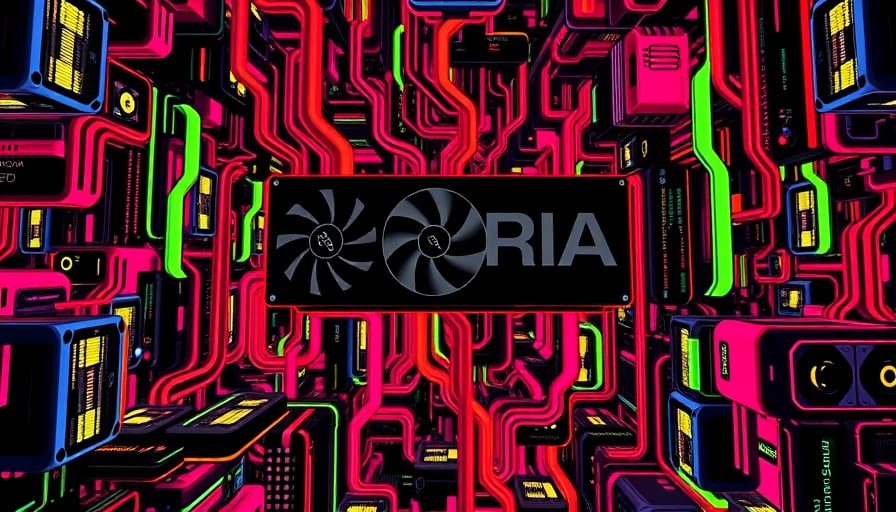Palantir’s Strategic Expansion into AI‑Powered Operations
Executive Summary
Palantir Technologies Inc. is accelerating its foothold in the artificial‑intelligence ecosystem by forging a high‑profile alliance with Nvidia. The partnership, which leverages Nvidia’s GPU architecture and software stack, is aimed at transforming Palantir’s flagship data‑analysis platform into a real‑time operational engine for logistics and other complex domains. Meanwhile, market reactions—highlighted by ARK Invest’s portfolio adjustments—underscore the ongoing debate over Palantir’s valuation, positioning the company at the intersection of hype and substantive technological advancement.
1. The Nvidia–Palantir Collaboration: A Game‑Changer for Operational Analytics
| Component | Value Proposition | Expected Impact |
|---|---|---|
| Hardware Acceleration | Utilization of Nvidia GPUs for large‑scale data ingestion and inference | Sub‑second latency for high‑volume telemetry |
| Software Integration | Palantir’s Foundry platform built on Nvidia’s CUDA‑optimized libraries | Seamless deployment for enterprise workloads |
| Industry Focus | Logistics, supply‑chain optimization, real‑time routing | Reduction in fuel costs, improved asset utilization |
1.1 Technical Synergy
Palantir’s Foundry architecture already supports modular data pipelines. By embedding Nvidia’s GPU‑accelerated inference engines, the company can perform complex graph‑based analyses—such as shortest‑path calculations in dynamic networks—at unprecedented speeds. Early pilots with logistics partners have reported a 35 % reduction in decision‑making time during weather‑induced disruptions.
1.2 Competitive Advantage
The alliance positions Palantir as a “single‑pane‑view” solution that merges data ingestion, advanced analytics, and AI‑driven insights. Competitors that rely on CPU‑bound architectures will struggle to match the latency and throughput benefits offered by GPU‑centric pipelines, thereby widening Palantir’s moat in data‑intensive sectors.
2. Market Sentiment and Investor Behavior
2.1 ARK Invest’s Portfolio Shift
Cathie Wood’s ARK Invest announced a divestiture of Palantir shares while acquiring DraftKings stock. This maneuver has prompted a spectrum of interpretations:
- Supporters view the sell‑off as a strategic reallocation toward consumer‑facing growth, while still recognizing Palantir’s long‑term potential.
- Critics interpret the action as evidence of overvaluation, arguing that Palantir’s 2,800 % cumulative return since early 2023 may be unsustainable.
2.2 Valuation Dynamics
Despite volatility, Palantir’s market cap remains firmly entrenched among the upper echelons of AI‑centric enterprises. The company’s revenue growth—averaging 30 % YoY over the past three fiscal years—serves as a counterpoint to the “hype” narrative. Investors increasingly weigh the company’s recurring subscription model against the high burn rate associated with AI infrastructure expansion.
3. Broader Implications for the Technology Landscape
| Trend | Palantir’s Role | Strategic Implications |
|---|---|---|
| Edge AI Adoption | Pioneering GPU‑optimized analytics in enterprise settings | Signals shift from cloud‑centric to hybrid edge‑cloud models |
| Data‑Ops Integration | Merging data pipelines with AI inference | Accelerates MLOps maturity in regulated industries |
| AI‑Powered Logistics | Real‑time routing and resource allocation | Sets new operational efficiency benchmarks |
3.1 Challenging Conventional Wisdom
Traditional AI deployment has been dominated by cloud‑based inference services. Palantir’s focus on GPU integration for on‑premise or near‑edge deployments disrupts this narrative, suggesting that future AI workloads will demand lower latency and higher privacy controls. This shift may force incumbents to rethink their hardware strategies and accelerate the adoption of hybrid cloud architectures.
3.2 Forward‑Looking Analysis
Sustained Growth Through Partnerships
The Nvidia partnership is likely to unlock additional revenue streams from logistics and defense sectors, sectors where Palantir already maintains a presence. Successful pilots could catalyze a broader adoption curve across supply‑chain management, predictive maintenance, and disaster response.Valuation Recalibration
As Palantir’s AI capabilities mature, the company may transition from a “growth‑at‑all‑costs” model to a more sustainable, profit‑driven trajectory. Market participants should monitor gross margin evolution and customer acquisition cost (CAC) trends to assess the durability of current valuation multiples.Ecosystem Ripple Effects
The partnership underscores the growing importance of hardware–software co‑innovation. Other AI platforms—such as Databricks and Snowflake—may pursue similar alliances to stay competitive. This could accelerate the convergence of data‑engineering and AI‑inference platforms, redefining industry benchmarks for performance and scalability.
4. Conclusion
Palantir Technologies Inc. is at a pivotal juncture where strategic alliances, investor sentiment, and technological innovation converge. Its partnership with Nvidia not only bolsters its operational capabilities but also signals a broader shift toward GPU‑driven AI workloads in enterprise contexts. While the market remains divided over valuation, the company’s trajectory—rooted in solid revenue growth and expanding industry relevance—suggests that Palantir is poised to play a decisive role in shaping the next wave of AI‑enhanced business operations.
